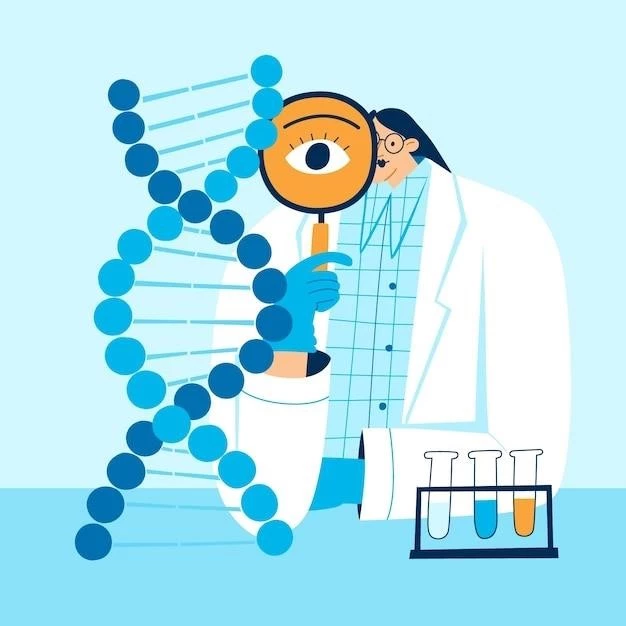Overview of Absent Corpus Callosum
A detailed examination of the condition known as absent corpus callosum, including its impacts․
Definition and Function
The absent corpus callosum is a rare condition characterized by the partial or complete absence of the corpus callosum, the structure that connects the two hemispheres of the brain․ Its function includes facilitating communication between the brain hemispheres for various cognitive processes․

Understanding Cataracts⁚ Causes and Treatment
A comprehensive exploration of the causes and treatment options for cataracts, a common eye condition․
Causes of Cataracts
Cataracts can develop due to various factors such as aging, prolonged exposure to ultraviolet light, underlying medical conditions like diabetes, smoking, and certain medications․ Each of these factors can contribute to the clouding of the eye’s lens, leading to cataract formation․
Treatment Options
Treatment for cataracts may involve corrective lenses, changes in eyeglass prescriptions, or surgery to remove the cloudy lens and replace it with an artificial intraocular lens․ The choice of treatment depends on the severity of the cataract and the individual’s visual needs․
Immunodeficiency Disorders⁚ Types and Symptoms
An in-depth analysis of various types of immunodeficiency disorders and their associated symptoms․
Common Types of Immunodeficiency Disorders
Common types of immunodeficiency disorders include primary immunodeficiency diseases like X-linked agammaglobulinemia, common variable immunodeficiency, and acquired immunodeficiency syndrome (AIDS)․ Each of these conditions presents unique challenges related to the immune system’s functionality․
Symptoms and Complications
Symptoms of immunodeficiency disorders may include recurrent infections, fatigue, slow wound healing, and susceptibility to opportunistic infections․ Complications can range from severe illness due to infections to autoimmune disorders stemming from the compromised immune response․
An exploration of the genetic underpinnings contributing to the development of this complex condition․
Genetic Factors Linked to Absent Corpus Callosum
The absence of the corpus callosum may be associated with genetic mutations affecting brain development during fetal growth․ These mutations can impact the formation and connectivity of neural pathways critical for corpus callosum formation, leading to its absence․
Role of Genetics in Cataracts and Immunodeficiency
Genetics play a crucial role in both cataracts and immunodeficiency disorders․ In cataracts, genetic predisposition can increase susceptibility to lens clouding․ Similarly, genetic mutations affecting the immune system can result in immunodeficiency disorders, impacting the body’s ability to respond to infections and maintain overall immune function․
Diagnosis and Management of Absent Corpus Callosum Cataract Immunodeficiency
Evaluating diagnostic approaches and therapeutic strategies for this multifaceted medical condition․
Diagnostic Procedures
Diagnostic procedures for absent corpus callosum cataract immunodeficiency may include imaging studies like MRI to assess brain structure, ophthalmologic exams for cataract evaluation, and immunological tests to identify immune system abnormalities․ A comprehensive diagnostic approach helps in understanding the extent and implications of these interconnected conditions․
Treatment Approaches
Management of absent corpus callosum cataract immunodeficiency involves a multidisciplinary approach․ Treatment may include surgical interventions for cataracts, neurological therapies for corpus callosum abnormalities, and immunomodulatory strategies for addressing immune system deficits․ Coordinated care tailored to the specific needs of each individual is essential for optimal outcomes․
Research Advances in Treating Absent Corpus Callosum Cataract Immunodeficiency
Exploring recent developments in the medical field aimed at addressing this complex combination of conditions․
Current Research Studies and Findings
Ongoing research focuses on understanding the underlying mechanisms of absent corpus callosum cataract immunodeficiency, exploring potential targeted therapies, and investigating prognostic indicators for improved patient care․ Recent findings contribute to the evolving knowledge base and treatment strategies for this complex condition․
Emerging Therapies and Technologies
Advancements in therapeutic modalities such as gene therapy, immunomodulation techniques, and minimally invasive surgical procedures show promise in the treatment of absent corpus callosum cataract immunodeficiency․ Cutting-edge technologies like precision medicine and personalized interventions hold potential for enhancing outcomes and quality of life for affected individuals․
Prognosis and Long-Term Outcomes of Absent Corpus Callosum Cataract Immunodeficiency
Evaluating the expected course of the condition and its impact on individuals over time․
Prognostic Factors
Prognosis for absent corpus callosum cataract immunodeficiency is influenced by factors like the severity of brain abnormalities, immune system complications, response to treatments, and overall health status․ Close monitoring and individualized care are essential in determining long-term outcomes and quality of life for affected individuals․
Long-Term Management Strategies
Long-term management of absent corpus callosum cataract immunodeficiency involves regular medical follow-ups, multidisciplinary care coordination, tailored therapies addressing brain, eye, and immune system needs, and ongoing support for individuals and their families․ A comprehensive approach focused on enhancing quality of life and overall well-being is crucial in the management of this complex condition․
Support and Resources for Individuals with Absent Corpus Callosum Cataract Immunodeficiency
Providing assistance and access to various support services tailored to meet the needs of affected individuals․
Support Groups and Counseling Services
Support groups and counseling services offer emotional support, guidance, and a sense of community for individuals and families navigating the challenges of absent corpus callosum cataract immunodeficiency․ These resources provide opportunities to share experiences, learn coping strategies, and access mental health support tailored to their specific needs․
Available Resources and Assistance Programs
Various resources and assistance programs are available to support individuals with absent corpus callosum cataract immunodeficiency, including financial aid, specialized healthcare services, educational programs, and community outreach initiatives․ These resources aim to enhance access to care, improve quality of life, and empower individuals and families facing these complex medical challenges․
